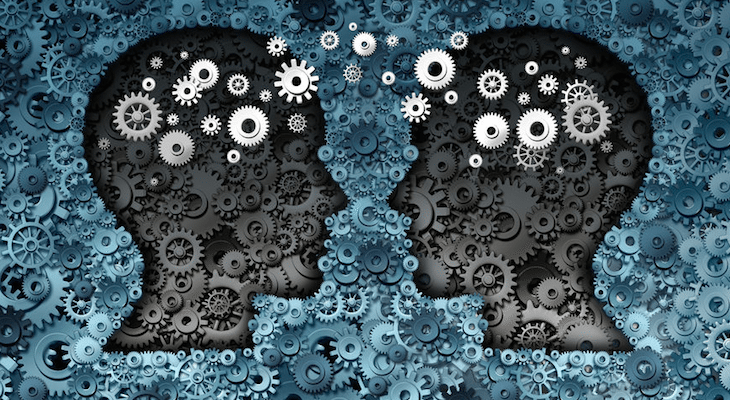Interpersonal relationships are hard. We’re all trying to figure out how to get along, and we’re going to screw up. Nevertheless, some people are much, much better at it than others. What’s their secret? The answer, if there is one, is the quest in the burgeoning field of social intelligence.
Researchers are looking at the entire range of social intelligence, from how to help people with autism better understand the world, how managers can lead more effective teams and how to integrate machines into more aspects of life. MIT’s Center for Brains, Minds & Machines is one of many research groups that are trying to sort out the differences between learning and biology when it comes to social interaction. Their efforts make such things as type indicators and personality tests seem quaint.
Related: Kevin Kelly Discusses Artificial Intelligence in The Inevitable
Social intelligence work
In a way, they are. For example, there is little evidence that the Myers-Briggs Type Indicator helps people find their ideal jobs or helps managers understand employees better. That’s not a surprise: people are complex bundles of contradictions. If you understand that, you have a little bit of social intelligence.
One of the leading researchers in the field is Daniel Goleman. The short version of his findings have been published in the Harvard Business Review; the long version can be found in his book “Social Intelligence: The New Science of Human Relationships” (Bantam, 2007). One of his key findings is that people mirror what they see at a biological level. We’ve all heard that the tone starts from the top, but it goes beyond that. A leader’s interactions with other people can actually change their neural connections. That’s why social intelligence has become the work of biologists using MRI machines rather than psychologists soliciting information through interviews.
The reality is that, at least right now, there aren’t any quick tips for improving social intelligence, just as there aren’t any for improving intellectual intelligence. Book learning requires a commitment of time and effort, and social learning may not be any different. If you’re committed to improving your skills over the long haul, though, you have some options.
Goleman recommends coaching with a psychological focus. Executives can work with people who assess situations and provide guidance. That’s great, if you work for a large company that has extensive resources for leadership development, but that won’t fly at most small businesses.
Another way to build self-awareness is to analyze decision-making. Peter Drucker has long championed this: it can be as simple as writing down the different decisions that you make, then going back to see whether it was the right one or the wrong one. Over time, you’ll develop some insight into what works and what doesn’t.
Related: Sign up to receive the StartupNation newsletter!
You can try expanding your own horizons. True, entrepreneurs don’t have a lot of free time, but spending some of it doing something completely new with other people can help you build empathy. Maybe it’s learning a language, taking improve classes or participating in a volunteer project. You can develop the perspective of what it’s like to now know what you’re doing – and that can help you build authentic interactions with employees.
“Social Intelligence: The New Science of Human Relationships” is available wherever fine books are sold and at StartupNation.com.






